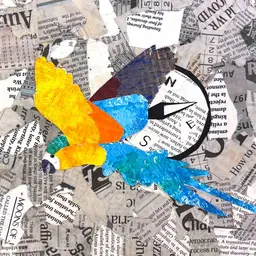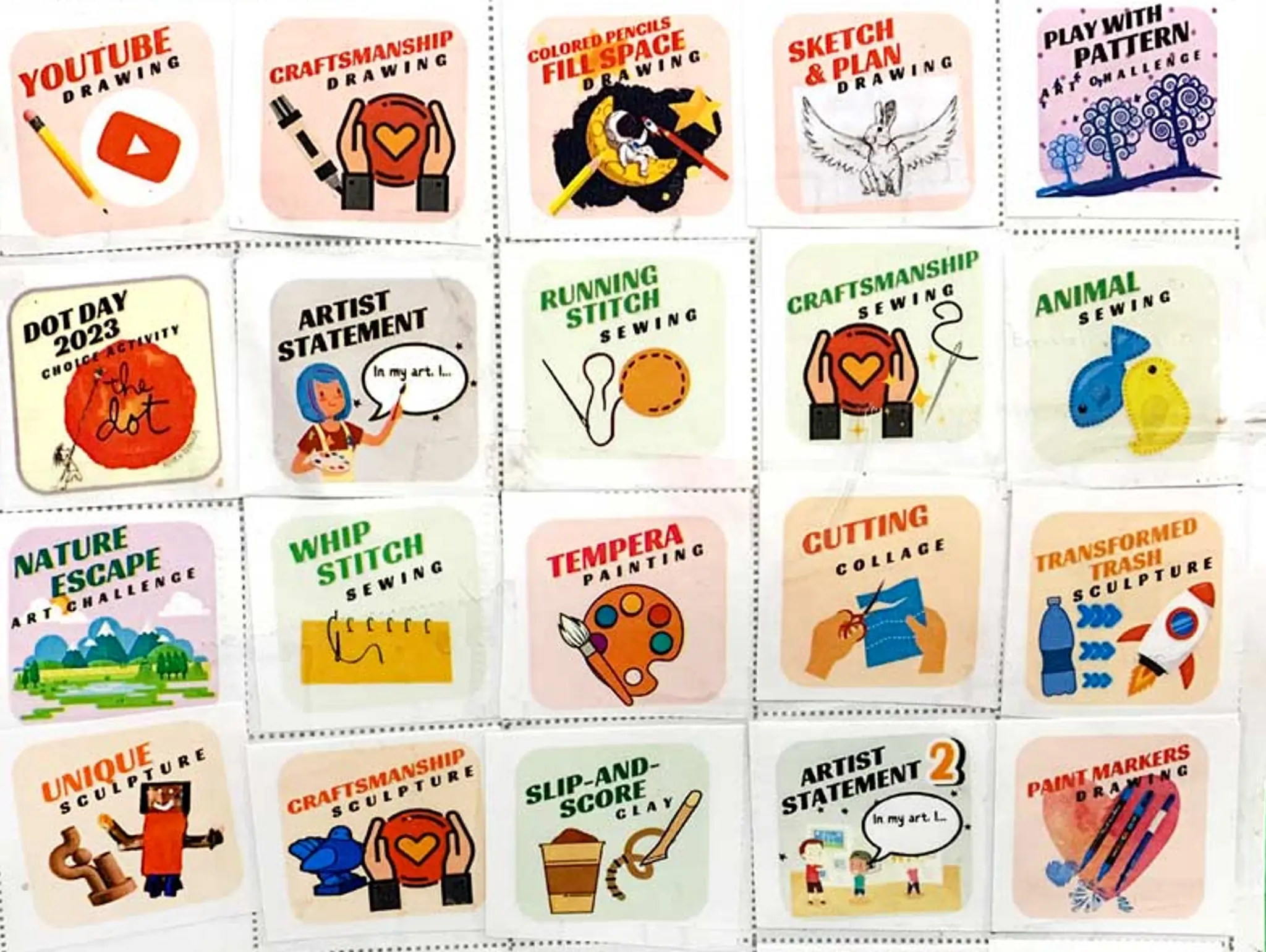
Managing The Art Room

A visual arts educator shares how to support students by integrating technology alongside traditional hands-on methods.

An arts educator and SEL coach invites teachers to reflect on AI and build a shared understanding of the technology with their students.

An art teacher inspires a second-grade student to turn perceived mistakes into something new, creating a ripple effect of joy in the art room.

An art teacher develops a successful badging system that empowers students to track their progress, reflect on their learning, and set personal goals.

An art teacher introduces a new approach to teaching the Elements and Principles of Design using small-scale art projects within an art journal.

An art teacher explores how personal art-making outside of the classroom enhances the feedback she gives to students.

Developing Studio Rules focuses on creating a clean, orderly, and considerate art studio environment. Learn about assigning rotating tasks, proper labeling, and recycling procedures to ensure a smooth, respectful workspace.

High-school students develop environmental awareness and tackle contemporary issues while interacting with nature.

An art teacher begins her classes with a mindful art activity to ground students in the present and prepare them to learn.

Raine Valentine shares a transformative painting practice that promotes self-discovery, emotional release, and spiritual alignment.

Mini challenges for students center around artists collecting and synthesizing and how artists tell stories from the book Making Artists.

Middle-school students use critical thinking, ideation, and the power of process to create meaningful self-portraits.